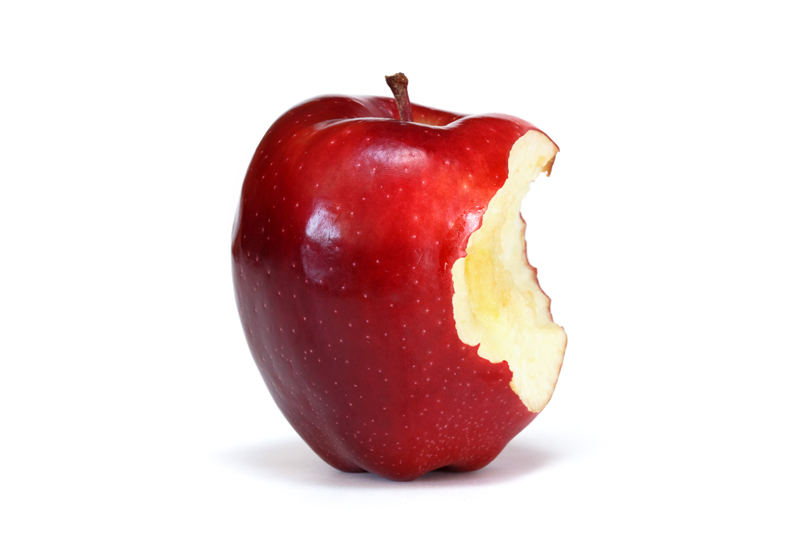Medicinal Uses For Cooking Herbs

Everyday common herbs and spices you have in your kitchen have some pretty amazing health benefits. See what healing qualities your favorite herbs or spices have, you may gain a whole new appreciation for that herb or spice.
Common herbs used for cooking and their medicinal properties. The dosages listed are guidelines,
How to Make An Herbal Tea will be at bottom of article
-*-*-*-*-*-*-*-*-*-*-*-*-*-*-*-*-*-*-*-*-*-*-*-*-*-*-*-*-*-*-*-*-*-*-*-*-*-*-*-
Basil (leaf, flower) is cooling and belongs to the mint family. It aids digestion, supports the stomach and is a slight sedative.
Tea 4-6 oz
Tincture 10-15 drops
-*-*-*-*-*-*-*-*-*-*-*-*-*-*-*-*-*-*-*-*-*-*-*-*-*-*-*-*-*-*-*-*-*-*-*-*-*-*-*-
Bay (leaf) is an astringent, anti-bacterial and anti-fungal. It supports the nervous system, stomach, helps dispel gas. It is also stimulates menstrual flow.
Tea 2-4 oz
Tincture 10 drops
-*-*-*-*-*-*-*-*-*-*-*-*-*-*-*-*-*-*-*-*-*-*-*-*-*-*-*-*-*-*-*-*-*-*-*-*-*-*-*-
Black pepper (seed) is stimulating, increases flow of gastric enzymes, and helps prevent constipation.
Tea 2oz
-*-*-*-*-*-*-*-*-*-*-*-*-*-*-*-*-*-*-*-*-*-*-*-*-*-*-*-*-*-*-*-*-*-*-*-*-*-*-*-
Cayenne strengthens the heart, capillaries, arteries and nerves. Good for cold feet and hands. It also stimulates stomach secretions and opens the bronchi. Mix cayenne with garlic, lemon, ginger and honey to make a tea to help get over a cold or flu. You can vary this tea with or without the ginger or garlic, and just use a pinch of cayenne. For any sudden gash, nick, or serious cut, just apply enough cayenne pepper to the injury until the bleeding stops.
Tea just a pinch of cayenne
Tincture 2-5 drops
-*-*-*-*-*-*-*-*-*-*-*-*-*-*-*-*-*-*-*-*-*-*-*-*-*-*-*-*-*-*-*-*-*-*-*-*-*-*-
Cinnamon (bark) is astringent, dispels gas, anti-bacterial, anti-microbial. It can also help relieve diarrhea.
Tea 2 oz
Tincture 5-10 drops
-*-*-*-*-*-*-*-*-*-*-*-*-*-*-*-*-*-*-*-*-*-*-*-*-*-*-*-*-*-*-*-*-*-*-*-*-*-
Cloves are anesthetic and work well for toothaches (a drop of the oil on the offending tooth) and as a sore throat gargle.
Tea 2 oz
Tincture 10 drops in water for gargle do not swallow
-*-*-*-*-*-*-*-*-*-*-*-*-*-*-*-*-*-*-*-*-*-*-*-*-*-*-*-*-*-*-*-*-*-*-*-*-*-*-
Fennel (seed) is a wonderful warming plant to help ease flatulence, indigestion, colic and gastro-intestinal spasms. Fennel will also ease throat tension and coughs as well as bring up phlegm from the lungs.
Tea 4-6 oz
Tincture 10-15 drops
-*-*-*-*-*-*-*-*-*-*-*-*-*-*-*-*-*-*-*-*-*-*-*-*-*-*-*-*-*-*-*-*-*-*-*-*-*-*-
Garden sage (leaf) is cooling, disinfectant and astringent. It cools a fever, cleanses the blood, eases headache and nervous tension. It also stimulates digestion. Garden sage also works well as a mouthwash for sore throat, mouth ulcers and bleeding gums. Garden sage is the variety of sage that you will commonly find in the grocery store.
Tea 4-6 oz
Tincture 10-15 drops
-*-*-*-*-*-*-*-*-*-*-*-*-*-*-*-*-*-*-*-*-*-*-*-*-*-*-*-*-*-*-*-*-*-*-*-*-*-*-
Garlic is excellent when you are sick. It stimulates your immune response, is anti-microbial and promotes sweating. Garlic decreases cholesterol, LDLs, and blood pressure. To enjoy the medicinal effects of garlic sprinkle it raw onto your food, or add it in at the end of cooking once the heat is turned off.
-*-*-*-*-*-*-*-*-*-*-*-*-*-*-*-*-*-*-*-*-*-*-*-*-*-*-*-*-*-*-*-*-*-*-*-*-*-*-*-
Ginger is heating and increases circulation. It is useful for nausea, motion sickness and to stimulate the appetite. Ginger makes a great footbath to warm you on a cold night.
Tea 4-6 oz
Tincture 10-15 drops
-*-*-*-*-*-*-*-*-*-*-*-*-*-*-*-*-*-*-*-*-*-*-*-*-*-*-*-*-*-*-*-*-*-*-*-*-*-*-*-
Nutmeg (seed) aids digestion, flatulence, diarrhea and nausea.
Tea 2-3 oz
Tincture 5 drops
-*-*-*-*-*-*-*-*-*-*-*-*-*-*-*-*-*-*-*-*-*-*-*-*-*-*-*-*-*-*-*-*-*-*-*-*-*-*-*-
Oregano (leaf) helps indigestion, coughs and headaches. It is a good poultice for painful swelling.
Tea 4-6 oz
Tincture 10-15 drops
-*-*-*-*-*-*-*-*-*-*-*-*-*-*-*-*-*-*-*-*-*-*-*-*-*-*-*-*-*-*-*-*-*-*-*-*-*-*-*-
Peppermint (leaf) is both cooling and stimulating. It helps cramps from gas, bloating, motion sickness and nausea. Peppermint can also soothe a headache by drinking the tea or putting a cool cloth soaked in tea across your forehead.
Tea 4-6 oz
Tincture 10-15 drops
-*-*-*-*-*-*-*-*-*-*-*-*-*-*-*-*-*-*-*-*-*-*-*-*-*-*-*-*-*-*-*-*-*-*-*-*-*-*-*-
Rosemary (leaf, flower) is warming, both a circulatory and liver tonic. It is a digestive aid and stimulates the liver as well as gastric juices. It is will soothe a headache. Rosemary is very antiseptic and makes a good wound soak.
Tea 4-6 oz
Tincture 10-15 drops
-*-*-*-*-*-*-*-*-*-*-*-*-*-*-*-*-*-*-*-*-*-*-*-*-*-*-*-*-*-*-*-*-*-*-*-*-*-*-*-
Tarragon (leaf) stimulates the appetite and relieves flatulence. It is also anti-fungal and anesthetic.
Tea 4 oz
Tincture 10 drops
-*-*-*-*-*-*-*-*-*-*-*-*-*-*-*-*-*-*-*-*-*-*-*-*-*-*-*-*-*-*-*-*-*-*-*-*-*-*-*
Thyme (leaf) supports the stomach. It is also antiseptic (good as a wash for skin infections). It works well for congested lungs and shortness of breath.
Tea 4-6 oz
Tincture 10-15 drops
-*-*-*-*-*-*-*-*-*-*-*-*-*-*-*-*-*-*-*-*-*-*-*-*-*-*-*-*-*-*-*-*-*-*-*-*-*-*-*-
Turmeric (root) is warming, analgesic (painkiller) and astringent. It promotes bile, relieves a congested liver and gallstones and aids digestion. Turmeric can also help to reduce tumors and uterine fibroids.
Tea 4-6 oz
Tincture 10-15 drops
-*-*-*-*-*-*-*-*-*-*-*-*-*-*-*-*-*-*-*-*-*-*-*-*-*-*-*-*-*-*-*-*-*-*-*-*-*-*-*-
How to Make An Herbal Tea
The traditional way in most herbal recipes is as followed:
* To make tea, use one-tablespoon fresh leaves or flowers. If the plant material is dried, use one teaspoon.
* Add the herb--or a blend of herbs--to a tea ball or a steeping cup that's resting in a mug. If desired, you can include some clippings of stevia, a natural sweetener, with the tea herbs.
* Pour hot--but not boiling--water in the mug and let steep for five minutes or less.
* Add honey, lemon or sugar as desired.
Caution: If you're not used to drinking fresh herbal teas, start slowly. Make sure you know the identity of the plant you're using to make tea, and be watchful for reactions.
This information is for informational purpose only and is not intended to replace the care or advice of a physician.
Common herbs used for cooking and their medicinal properties. The dosages listed are guidelines,
How to Make An Herbal Tea will be at bottom of article
-*-*-*-*-*-*-*-*-*-*-*-*-*-*-*-*-*-*-*-*-*-*-*-*-*-*-*-*-*-*-*-*-*-*-*-*-*-*-*-
Basil (leaf, flower) is cooling and belongs to the mint family. It aids digestion, supports the stomach and is a slight sedative.
Tea 4-6 oz
Tincture 10-15 drops
-*-*-*-*-*-*-*-*-*-*-*-*-*-*-*-*-*-*-*-*-*-*-*-*-*-*-*-*-*-*-*-*-*-*-*-*-*-*-*-
Bay (leaf) is an astringent, anti-bacterial and anti-fungal. It supports the nervous system, stomach, helps dispel gas. It is also stimulates menstrual flow.
Tea 2-4 oz
Tincture 10 drops
-*-*-*-*-*-*-*-*-*-*-*-*-*-*-*-*-*-*-*-*-*-*-*-*-*-*-*-*-*-*-*-*-*-*-*-*-*-*-*-
Black pepper (seed) is stimulating, increases flow of gastric enzymes, and helps prevent constipation.
Tea 2oz
-*-*-*-*-*-*-*-*-*-*-*-*-*-*-*-*-*-*-*-*-*-*-*-*-*-*-*-*-*-*-*-*-*-*-*-*-*-*-*-
Cayenne strengthens the heart, capillaries, arteries and nerves. Good for cold feet and hands. It also stimulates stomach secretions and opens the bronchi. Mix cayenne with garlic, lemon, ginger and honey to make a tea to help get over a cold or flu. You can vary this tea with or without the ginger or garlic, and just use a pinch of cayenne. For any sudden gash, nick, or serious cut, just apply enough cayenne pepper to the injury until the bleeding stops.
Tea just a pinch of cayenne
Tincture 2-5 drops
-*-*-*-*-*-*-*-*-*-*-*-*-*-*-*-*-*-*-*-*-*-*-*-*-*-*-*-*-*-*-*-*-*-*-*-*-*-*-
Cinnamon (bark) is astringent, dispels gas, anti-bacterial, anti-microbial. It can also help relieve diarrhea.
Tea 2 oz
Tincture 5-10 drops
-*-*-*-*-*-*-*-*-*-*-*-*-*-*-*-*-*-*-*-*-*-*-*-*-*-*-*-*-*-*-*-*-*-*-*-*-*-
Cloves are anesthetic and work well for toothaches (a drop of the oil on the offending tooth) and as a sore throat gargle.
Tea 2 oz
Tincture 10 drops in water for gargle do not swallow
-*-*-*-*-*-*-*-*-*-*-*-*-*-*-*-*-*-*-*-*-*-*-*-*-*-*-*-*-*-*-*-*-*-*-*-*-*-*-
Fennel (seed) is a wonderful warming plant to help ease flatulence, indigestion, colic and gastro-intestinal spasms. Fennel will also ease throat tension and coughs as well as bring up phlegm from the lungs.
Tea 4-6 oz
Tincture 10-15 drops
-*-*-*-*-*-*-*-*-*-*-*-*-*-*-*-*-*-*-*-*-*-*-*-*-*-*-*-*-*-*-*-*-*-*-*-*-*-*-
Garden sage (leaf) is cooling, disinfectant and astringent. It cools a fever, cleanses the blood, eases headache and nervous tension. It also stimulates digestion. Garden sage also works well as a mouthwash for sore throat, mouth ulcers and bleeding gums. Garden sage is the variety of sage that you will commonly find in the grocery store.
Tea 4-6 oz
Tincture 10-15 drops
-*-*-*-*-*-*-*-*-*-*-*-*-*-*-*-*-*-*-*-*-*-*-*-*-*-*-*-*-*-*-*-*-*-*-*-*-*-*-
Garlic is excellent when you are sick. It stimulates your immune response, is anti-microbial and promotes sweating. Garlic decreases cholesterol, LDLs, and blood pressure. To enjoy the medicinal effects of garlic sprinkle it raw onto your food, or add it in at the end of cooking once the heat is turned off.
-*-*-*-*-*-*-*-*-*-*-*-*-*-*-*-*-*-*-*-*-*-*-*-*-*-*-*-*-*-*-*-*-*-*-*-*-*-*-*-
Ginger is heating and increases circulation. It is useful for nausea, motion sickness and to stimulate the appetite. Ginger makes a great footbath to warm you on a cold night.
Tea 4-6 oz
Tincture 10-15 drops
-*-*-*-*-*-*-*-*-*-*-*-*-*-*-*-*-*-*-*-*-*-*-*-*-*-*-*-*-*-*-*-*-*-*-*-*-*-*-*-
Nutmeg (seed) aids digestion, flatulence, diarrhea and nausea.
Tea 2-3 oz
Tincture 5 drops
-*-*-*-*-*-*-*-*-*-*-*-*-*-*-*-*-*-*-*-*-*-*-*-*-*-*-*-*-*-*-*-*-*-*-*-*-*-*-*-
Oregano (leaf) helps indigestion, coughs and headaches. It is a good poultice for painful swelling.
Tea 4-6 oz
Tincture 10-15 drops
-*-*-*-*-*-*-*-*-*-*-*-*-*-*-*-*-*-*-*-*-*-*-*-*-*-*-*-*-*-*-*-*-*-*-*-*-*-*-*-
Peppermint (leaf) is both cooling and stimulating. It helps cramps from gas, bloating, motion sickness and nausea. Peppermint can also soothe a headache by drinking the tea or putting a cool cloth soaked in tea across your forehead.
Tea 4-6 oz
Tincture 10-15 drops
-*-*-*-*-*-*-*-*-*-*-*-*-*-*-*-*-*-*-*-*-*-*-*-*-*-*-*-*-*-*-*-*-*-*-*-*-*-*-*-
Rosemary (leaf, flower) is warming, both a circulatory and liver tonic. It is a digestive aid and stimulates the liver as well as gastric juices. It is will soothe a headache. Rosemary is very antiseptic and makes a good wound soak.
Tea 4-6 oz
Tincture 10-15 drops
-*-*-*-*-*-*-*-*-*-*-*-*-*-*-*-*-*-*-*-*-*-*-*-*-*-*-*-*-*-*-*-*-*-*-*-*-*-*-*-
Tarragon (leaf) stimulates the appetite and relieves flatulence. It is also anti-fungal and anesthetic.
Tea 4 oz
Tincture 10 drops
-*-*-*-*-*-*-*-*-*-*-*-*-*-*-*-*-*-*-*-*-*-*-*-*-*-*-*-*-*-*-*-*-*-*-*-*-*-*-*
Thyme (leaf) supports the stomach. It is also antiseptic (good as a wash for skin infections). It works well for congested lungs and shortness of breath.
Tea 4-6 oz
Tincture 10-15 drops
-*-*-*-*-*-*-*-*-*-*-*-*-*-*-*-*-*-*-*-*-*-*-*-*-*-*-*-*-*-*-*-*-*-*-*-*-*-*-*-
Turmeric (root) is warming, analgesic (painkiller) and astringent. It promotes bile, relieves a congested liver and gallstones and aids digestion. Turmeric can also help to reduce tumors and uterine fibroids.
Tea 4-6 oz
Tincture 10-15 drops
-*-*-*-*-*-*-*-*-*-*-*-*-*-*-*-*-*-*-*-*-*-*-*-*-*-*-*-*-*-*-*-*-*-*-*-*-*-*-*-
How to Make An Herbal Tea
The traditional way in most herbal recipes is as followed:
* To make tea, use one-tablespoon fresh leaves or flowers. If the plant material is dried, use one teaspoon.
* Add the herb--or a blend of herbs--to a tea ball or a steeping cup that's resting in a mug. If desired, you can include some clippings of stevia, a natural sweetener, with the tea herbs.
* Pour hot--but not boiling--water in the mug and let steep for five minutes or less.
* Add honey, lemon or sugar as desired.
Caution: If you're not used to drinking fresh herbal teas, start slowly. Make sure you know the identity of the plant you're using to make tea, and be watchful for reactions.
This information is for informational purpose only and is not intended to replace the care or advice of a physician.
You Should Also Read:
Herbal Healing
Herbs, Teas and Foods for Dis-Eases

Related Articles
Editor's Picks Articles
Top Ten Articles
Previous Features
Site Map
Content copyright © 2023 by Victoria Abreo. All rights reserved.
This content was written by Victoria Abreo. If you wish to use this content in any manner, you need written permission. Contact Victoria Abreo for details.



